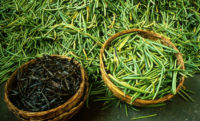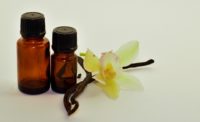2020 vanilla crop offers ‘opportunity for rebound,’ Nielsen-Massey says
Company’s biannual crop report estimates 2019 crop between 1,100-1,200 metric tons.

Vanilla flavor and extract supplier Nielsen-Massey is hopeful the 2020 vanilla crop will be more bountiful than last year’s yield.
The Waukegan, Illinois-based company noted in its November 2019 Crop Report that 2019’s vanilla crop was “late and not as abundant as previous years” thanks in part to heavy early rains across the growing regions of Madagascar.
Nielsen-Massey estimated the 2019 crop to total between 1,100 and 1,200 metric tons, about 20 to 30 percent less than 2018. However, the company noted about 100 and 200 metric tons of high-moisture, low quality vanilla carried over from 2018.
“In 2020, we believe the crop will begin to offer an opportunity for rebound,” wrote Craig Nielsen, v.p. of sustainability. “There is strong early evidence of flowering (boutons), which could lead to higher vanilla quantities.”
While the vanilla market is currently stable, Nielsen-Massey says it remains “fragile.” Years of high prices have reduced demand for pure, natural vanilla to between 1,700 to 1,800 tons, down from 2,700 tons in 2014 and 2015. Manufacturers have turned to less expensive natural alternatives, artificial vanilla and low-quality blends.
“With plantings up in most vanilla growing regions, and 2020 harvests anticipated to be larger, we hope we are nearing the end of the latest vanilla crisis,” Nielsen wrote. “The question is how quickly, or whether manufacturing customers will return to purchasing significant volumes of natural vanilla.”
The company suggested interest in natural vanilla could rebound because of greater demand for natural products. Furthermore, a new administration in Madagascar has been more supportive of the vanilla industry, with several measures implemented to protect production quality.
“Looking ahead to 2020, we believe there will be no major price adjustments and feel confident in ensuring we meet demand due to our broad supply chain in Madagascar and around the world,” Nielsen wrote.
Nielsen-Massey has launched sustainability initiatives in Madagascar, including installing latrines into a primary school and a clean-water well in Andranovato. The company also contributed teaching materials and is constructing a rainwater collection system.
Looking for a reprint of this article?
From high-res PDFs to custom plaques, order your copy today!







